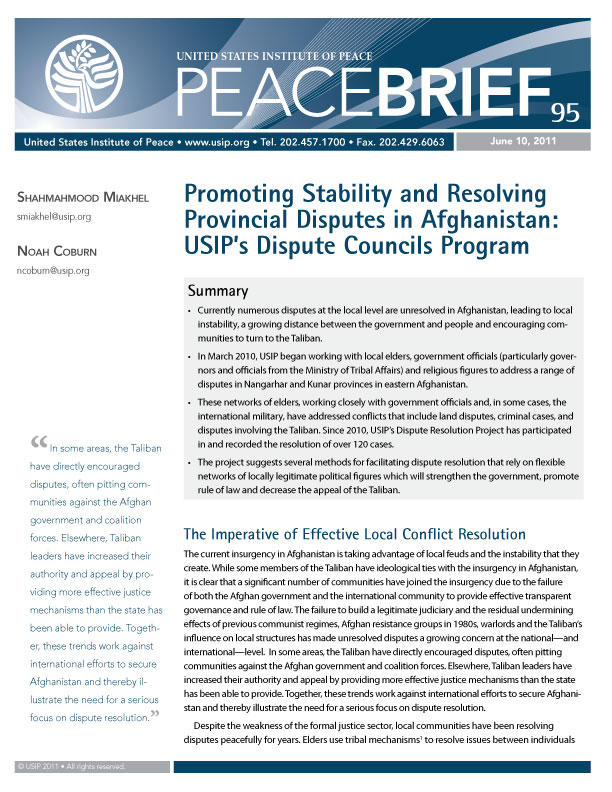Promoting Stability and Resolving Provincial Disputes in Afghanistan
Currently numerous disputes at the local level are unresolved in Afghanistan, leading to local instability, a growing distance between the government and people and encouraging communities to turn to the Taliban. In March 2010, USIP began working with local elders, government officials (particularly governors and officials from the Ministry of Tribal Affairs) and religious figures to address a range of disputes in Nangarhar and Kunar provinces in eastern Afghanistan.

Summary
- Currently numerous disputes at the local level are unresolved in Afghanistan, leading to local instability, a growing distance between the government and people and encouraging communities to turn to the Taliban.
- In March 2010, USIP began working with local elders, government officials (particularly governors and officials from the Ministry of Tribal Affairs) and religious figures to address a range of disputes in Nangarhar and Kunar provinces in eastern Afghanistan.
- These networks of elders, working closely with government officials and, in some cases, the international military, have addressed conflicts that include land disputes, criminal cases, and disputes involving the Taliban. Since 2010, USIP’s Dispute Resolution Project has participated in and recorded the resolution of over 120 cases.
- The project suggests several methods for facilitating dispute resolution that rely on flexible networks of locally legitimate political figures which will strengthen the government, promote rule of law and decrease the appeal of the Taliban.
About this Brief
The authors work in the Kabul office of the United States Institute of Peace on projects that help communities resolve conflict, increase access to justice and promote the rule of law. Shahmahmood Miakhel is USIP’s Country Director in Afghanistan. From 2003-2005, he was Afghanistan’s deputy minister of the Interior and he previously worked for the United Nations Assistance Mission in Afghanistan as a governance adviser. Noah Coburn is a political anthropologist focusing on informal justice at USIP’s Kabul office. He has been conducting research on violence and local political structures in Afghanistan since 2005 and is currently a visiting fellow at the University of Michigan.



